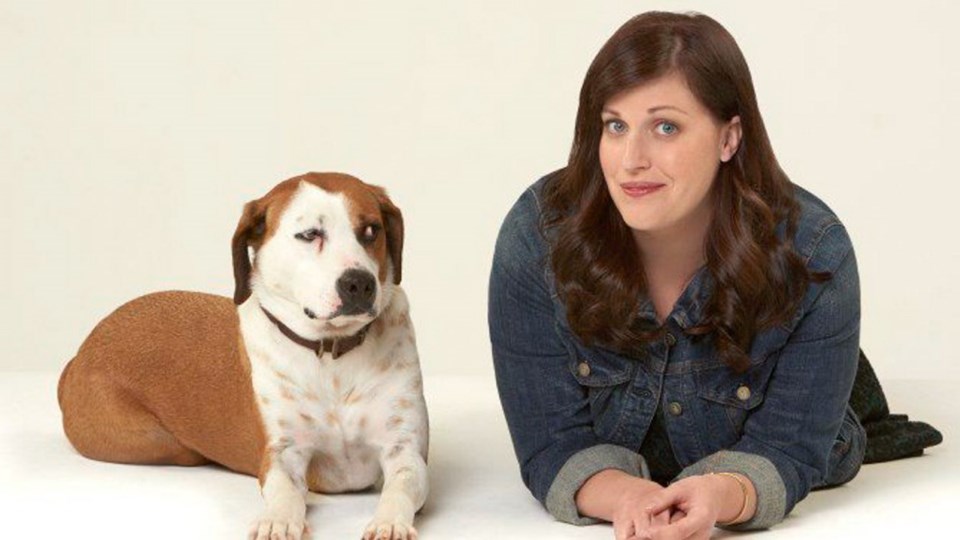As happens more often in cable than in broadcast television, Downward Dog, a new ABC comedy, began as a web series.
Created by Michael Killen and Samm Hodges for Animal, a Pittsburgh advertising, production and video effects company, the original eight episodes, which last all of eight minutes combined, are still up on Vimeo to see, and though they are lovely, I would wait to watch them, in order to take the TV series fresh.
Dog, airing Tuesday nights, is a relatively quiet, at times almost meditative, comedy with a talking animal at its centre. (It’s a specialty of Animal, which made a chihuahua talk for Taco Bell and cows and sheep speak for the California Milk Advisory Board.)
There are no slapstick chases, no tangled leashes. The dog, whose name is Martin (played by Ned and voiced by co-creator Hodges, with a bit of millennial vocal fry), does not throw around gratuitous pop cultural references or crack wise. Though his mouth is computer-animated when he speaks, it’s subtle — really just a small step removed from a dog staring into a camera.
Martin lives with Nan (Allison Tolman, from the first season of Fargo), a human woman. It is not a matter of ownership — when she takes him to what we might call an obedience school, he calls it “couples therapy.” Though he regards himself as the “dominant partner” in their relationship, as the series begins he is distressed: Nan has become distracted at work, leaving Martin alone at home for longer times. The disappearances and reappearances of her off-again, on-again boyfriend, Jason (Lucas Neff, from Raising Hope) also have him confused as to where they all are.
“I just don’t feel very respected, as a being,” Martin tells us. “I don’t want to come off as hypercritical or something, but we used to go on walks, like, actual walks. ... If I felt like she was doing anything remotely productive it would help me be supportive, like, as her partner.”
Martin speaks only to the audience, not to the human characters, or even with other dogs, whose actions he is left to interpret and judge: “In the past I have always judged these dogs that do the whole sit, stay, play dead thing; like just the phrase ‘play dead’ is actually pretty dark if you think about it.”
As a philosophical creature forming his own experiential theories about the universe and the creatures in it, he is more Snoopy than Mr. Ed. Although he will use a phrase like “societal norm” or “passive supplicant” and “me time,” and at one point describes himself as “only human,” he remains essentially dog-like in what he knows and does; Killen and Hodges offer a generous but not unreasonable theory of canine self-consciousness, translated into English.
As was the web series, ABC’s is set and made in Pittsburgh; its shallow-focus, art-directed photography and creamy palette, maintained from Animal’s in-house original, sets it apart from other ABC series.



